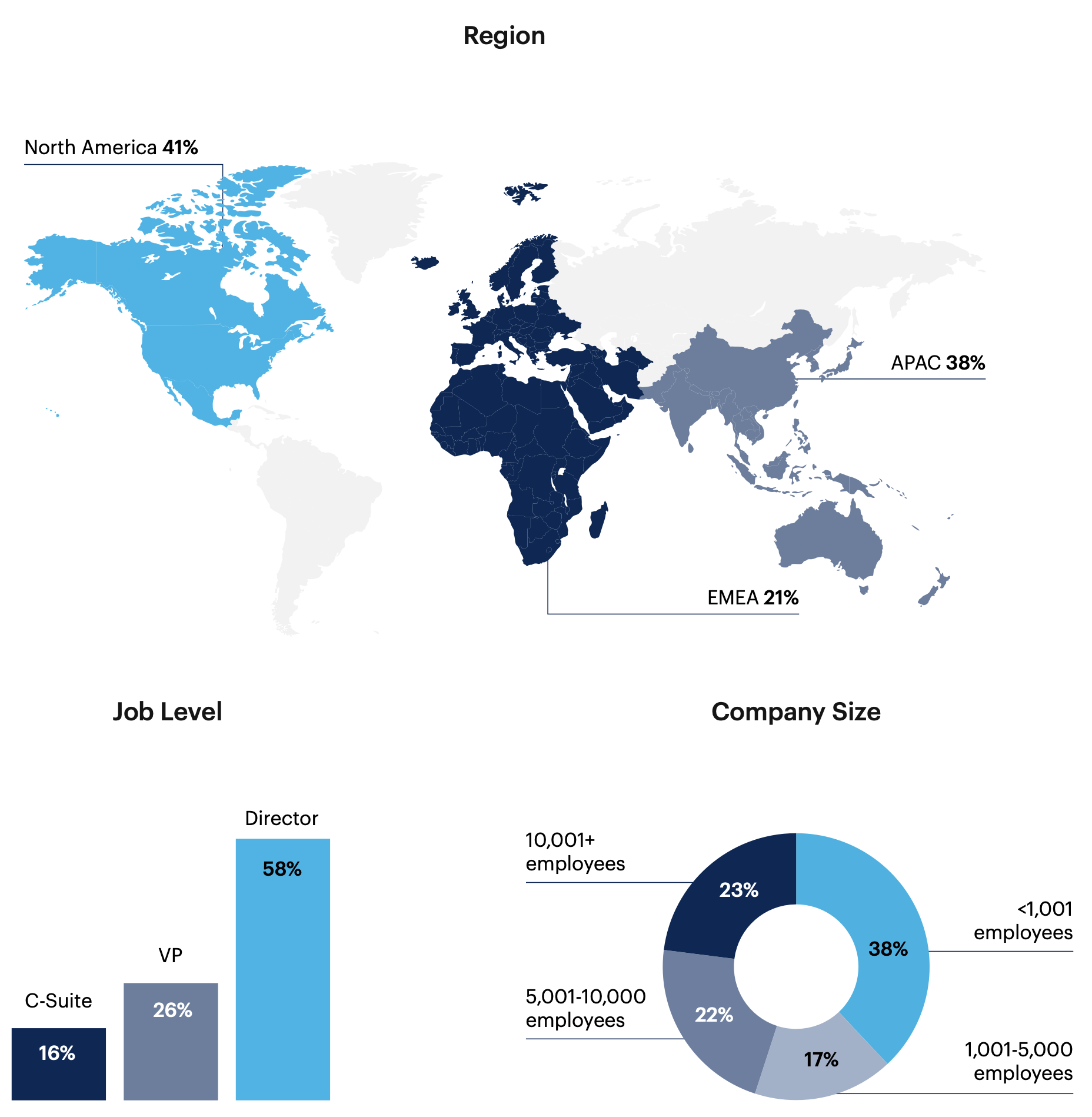Extended Reality (XR) in the Enterprise
Extended Reality (XR) has yet to achieve widespread use in enterprise organizations. Is there a business case to be made for XR, and do enterprise tech leaders see a future for it? Read on to find out.
One minute insights:
 Many tech leaders are deploying XR within their organizations
Many tech leaders are deploying XR within their organizations Headsets, smartphones and smart glasses are the most common XR tools currently in use
Headsets, smartphones and smart glasses are the most common XR tools currently in use End-user training is a popular use case for XR
End-user training is a popular use case for XR Many tech leaders are concerned with the investment risk of deploying XR
Many tech leaders are concerned with the investment risk of deploying XR Tech leaders believe that XR could improve the scope of employee training, allow for remote monitoring and support product design and development
Tech leaders believe that XR could improve the scope of employee training, allow for remote monitoring and support product design and development
Most tech leaders understand how XR works and many are deploying it in their organizations
Most respondents (68%) know how XR technology works, but only 13% consider themselves experts.
How informed are you about extended reality (XR) technology?

I’ve never heard of XR 0%
n = 300
More than half (55%) of respondents are currently deploying XR in their organization.
Is your organization currently deploying XR?
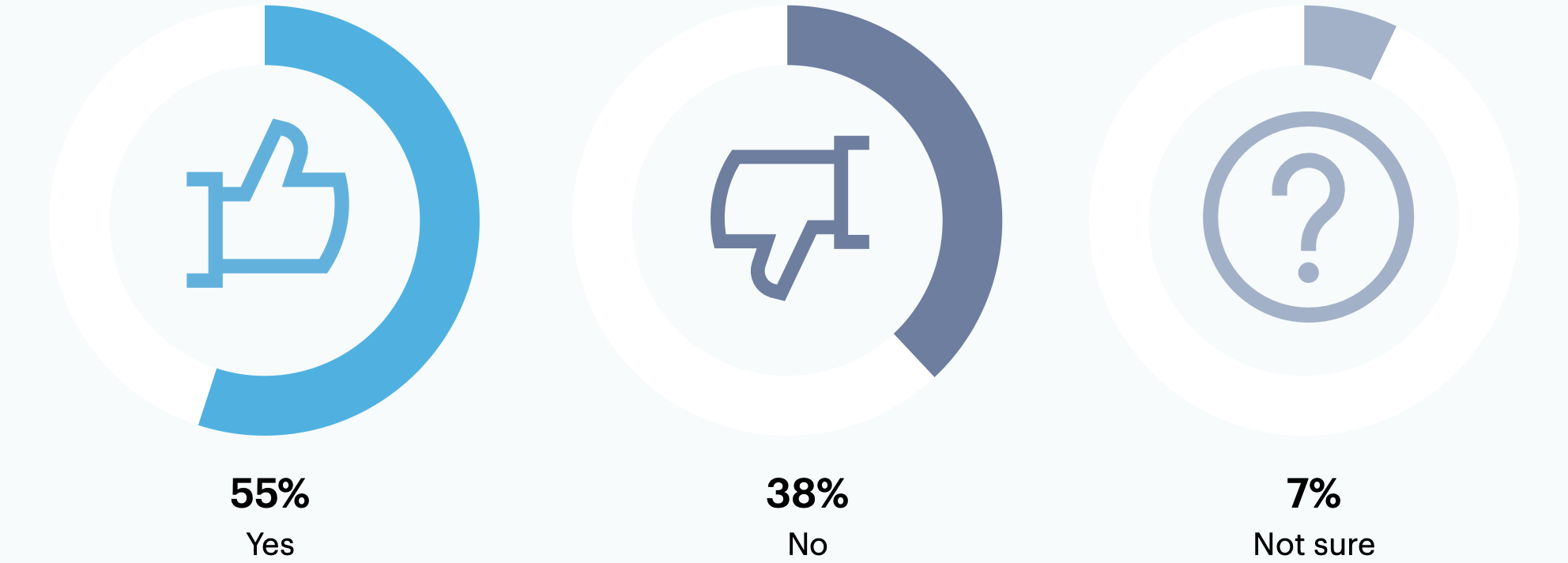
n = 300
Is your organization planning to deploy XR?
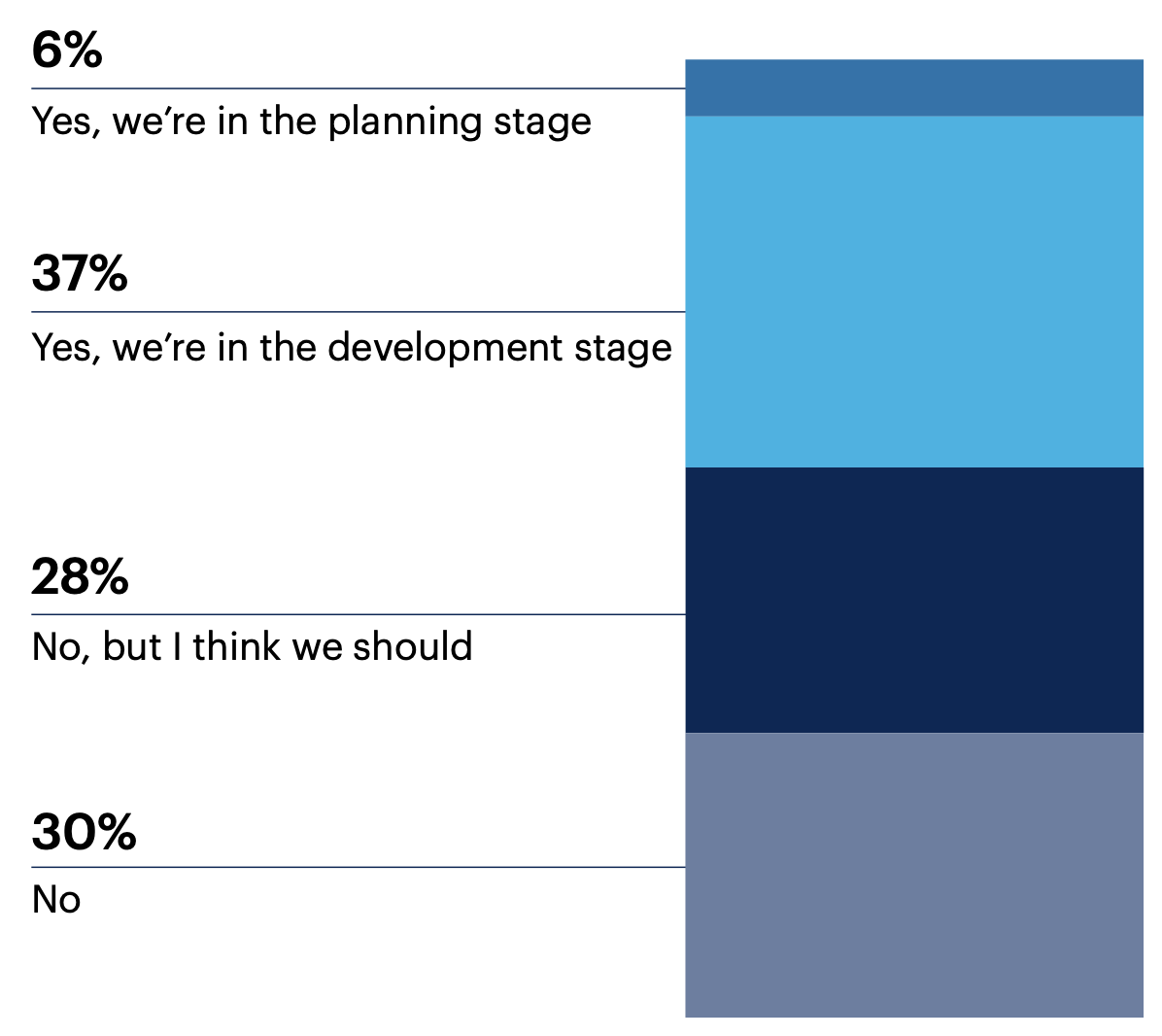
Among those who haven’t yet deployed, 43% are in either the development or planning stage.
Not sure 0%
n = 115
Are you satisfied with your organization’s deployment of XR?
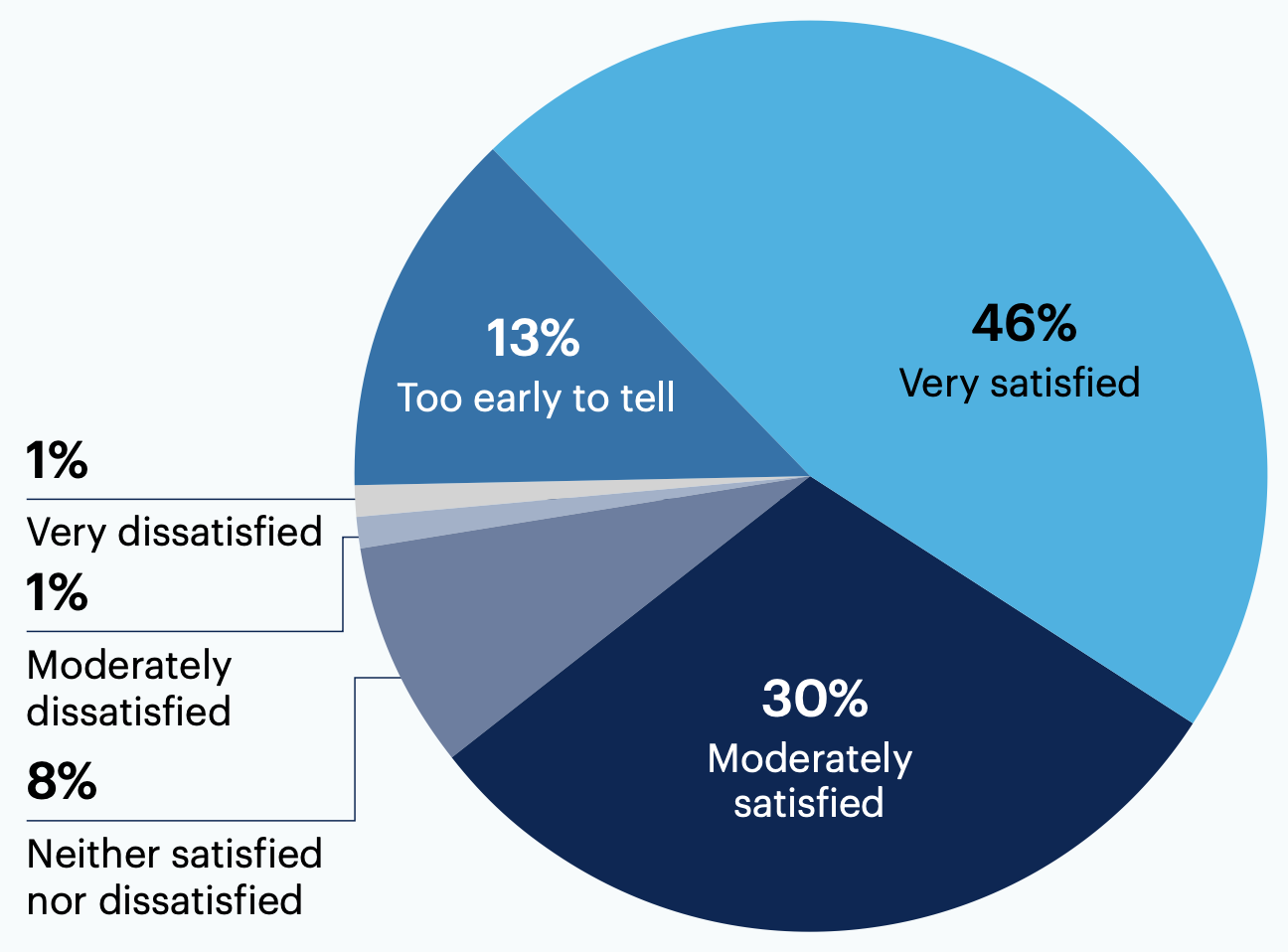
Most (76%) respondents are satisfied with the way their organization has deployed XR technology.
n = 165
We are using XR in our office very effectively.
Headsets are the most commonly used XR device, followed by smartphones and smart glasses
Are you using any of the following tools/devices/peripherals as part of your organization’s XR adoption?
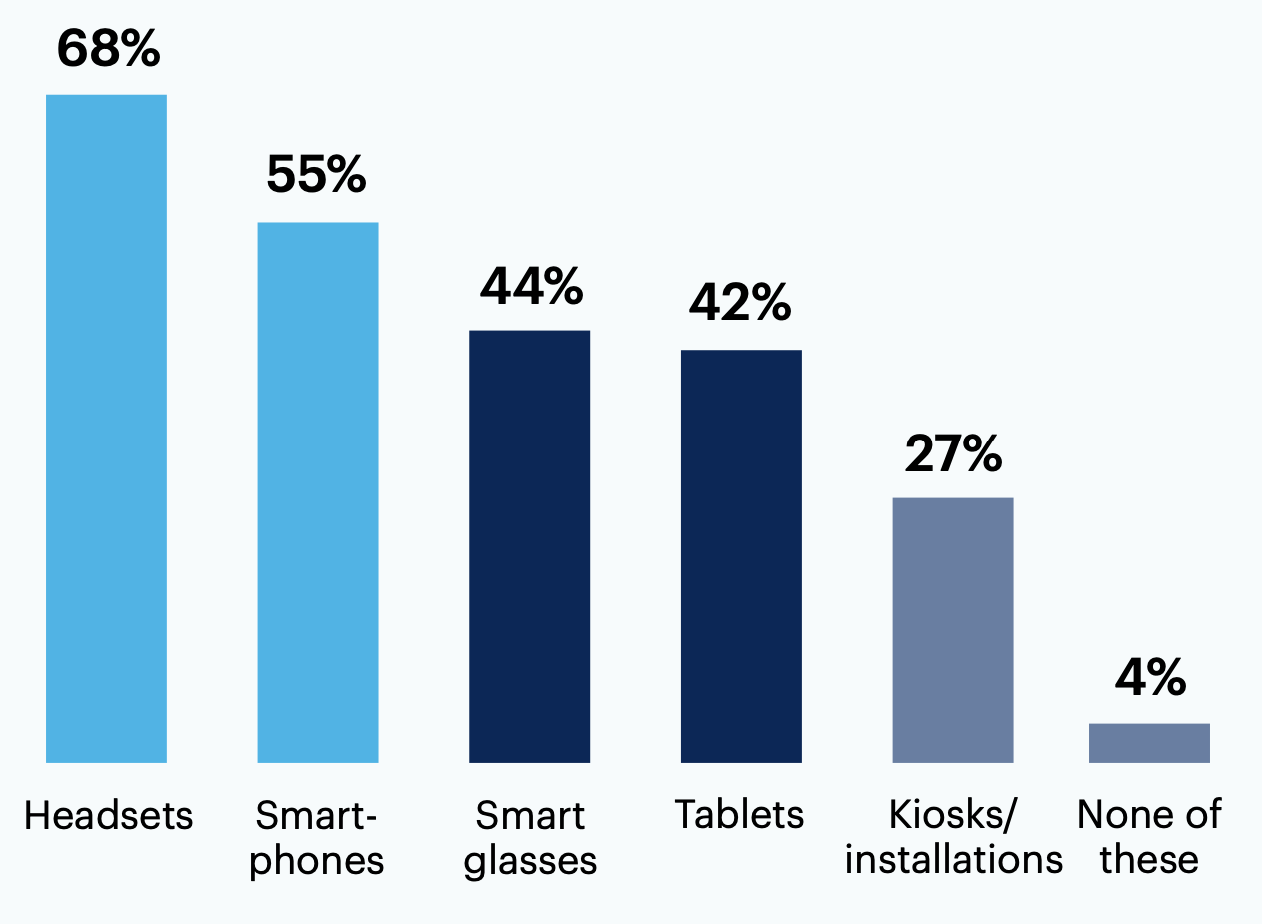
Headsets (68%), smartphones (55%) and smart glasses (44%) are the top three categories of XR tools and devices currently in use by respondents.
Other 0%
n = 165
[XR] will enhance the virtual world.
Tech leaders are interested in XR for end-user training, but are skeptical of the investment risk of implementing this technology
End-user training is the most popular reason for adopting or planning to adopt XR. 72% of respondents credit XR’s ability to facilitate remote training and provide safe, virtual environments as a reason for adoption.
What were the reasons your team decided to adopt or is planning to adopt XR?
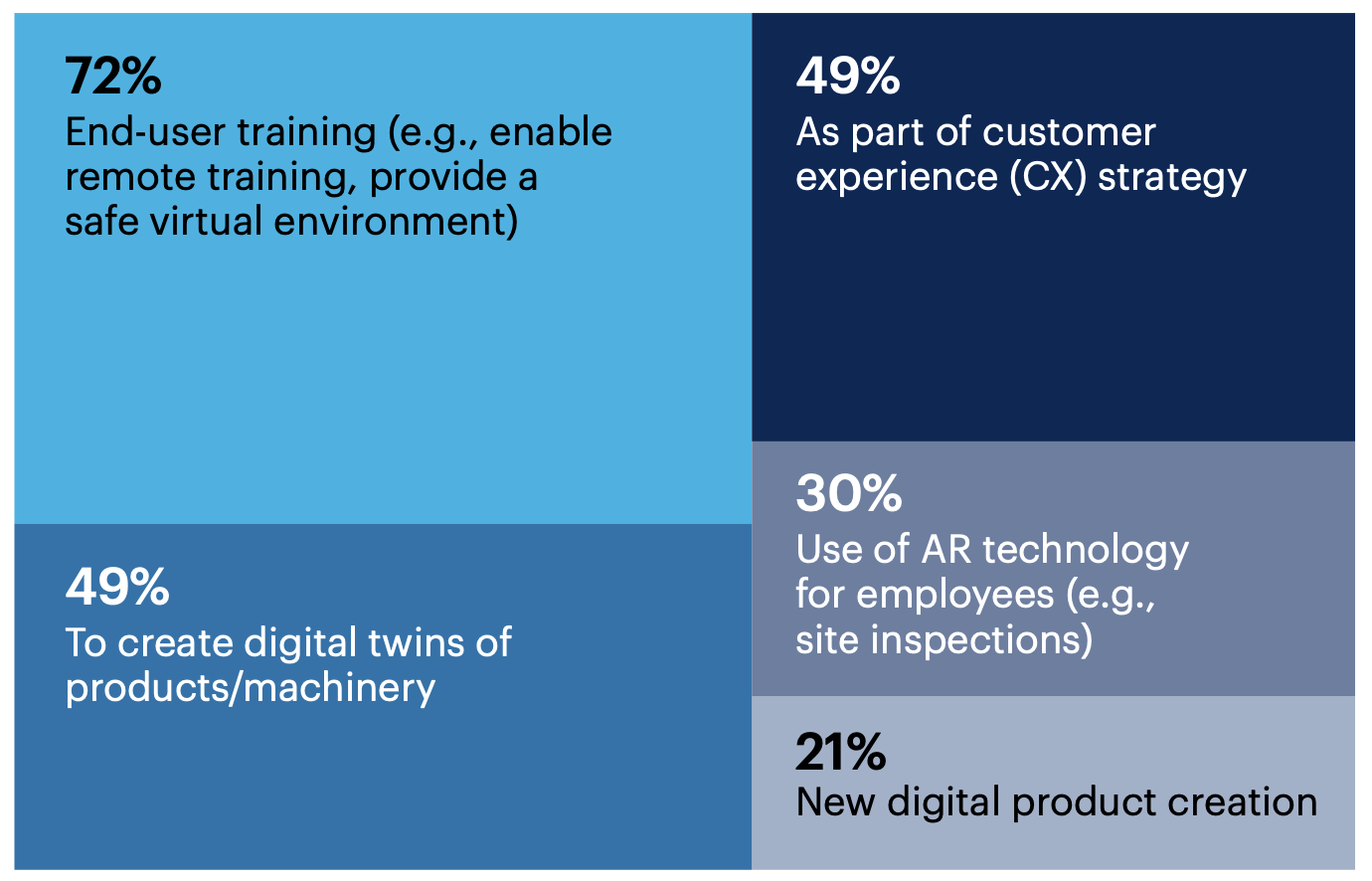
Employee engagement (e.g., attend meetings as “virtual beings”) 20%, Part of cost reductions strategy 14%, As part of an overall metaverse/digital realm strategy 11%, Marketing/ advertising strategy 9%, Executive pressure 7%, Investor pressure 3%, None of these 0%, Other 0%
n = 214
Respondents identified investment risk (58%), problems integrating with existing technology (52%) and unpleasant user experience (46%) as the top barriers to XR adoption.
What are the main barriers to XR adoption?
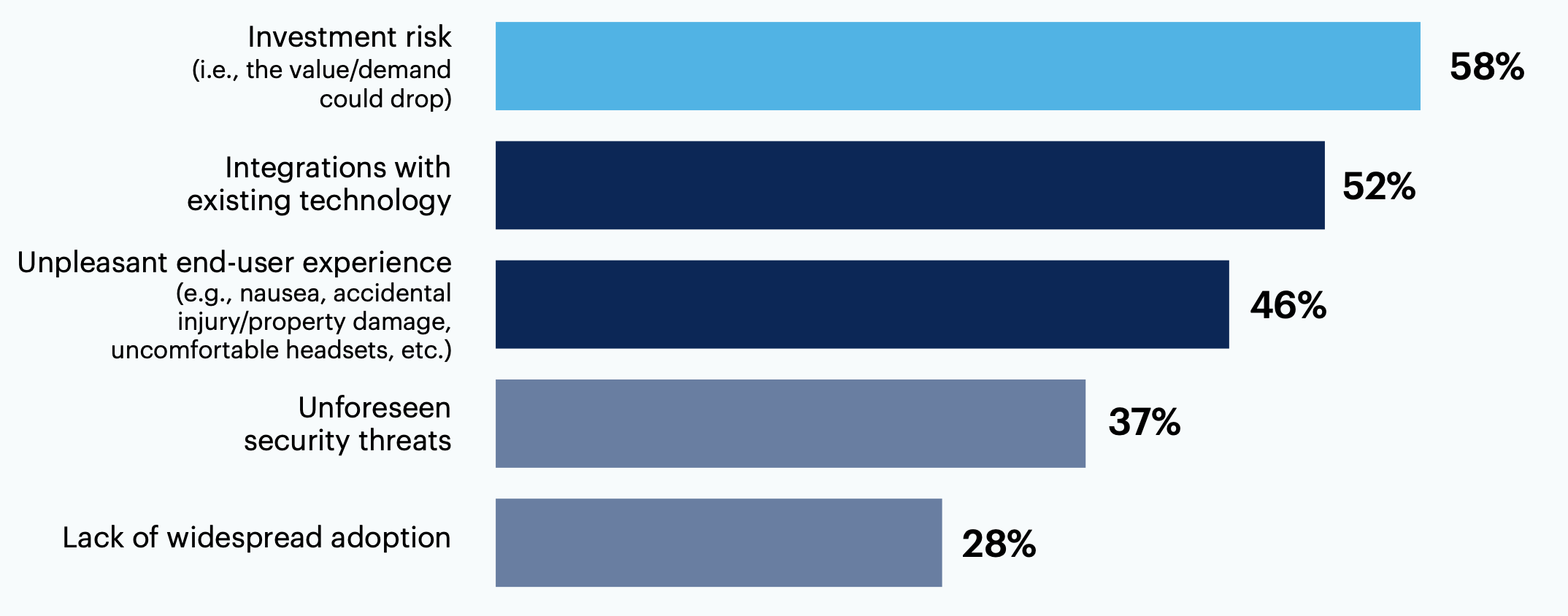
The need for physical devices to use XR 27%, Skills gaps (i.e., too few professionals with XR experience) 20%, Costs (e.g., initial investment in devices, etc.) 19%, Lack of business use case 16%, End-user skepticism (e.g., lack of demand/potential uptake) 14%, Lack of executive interest 10%, Unforeseen regulatory/governance challenges 5%, None of these 0%, Other 0%
n = 300
Lack of widespread adoption is the main barrier.
XR has potential for employee training in enterprise, and some tech leaders believe it will have a role to play in the future
Respondents identified XR’s ability to improve the scope of employee training (53%), facilitate remote monitoring (52%) and support product design and development (46%) as its top three opportunities.
What are the top opportunities with XR for enterprise?
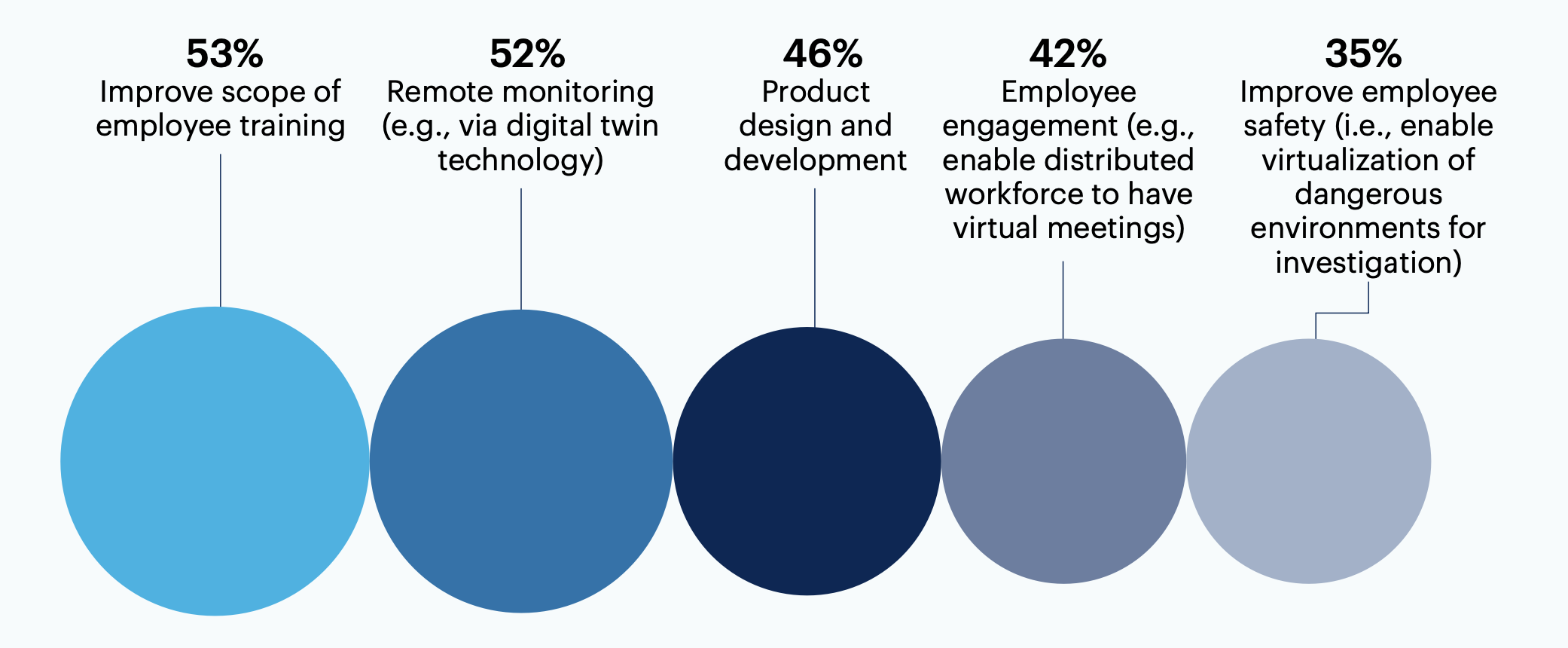
Customer experience 26%, Cost reductions (i.e., virtual tests instead of physical tests; remote observation to reduce on-site workforce demands, etc.) 19%, Marketing 14%, None of these 1%, Other 0%
n = 300
Almost half (45%) of respondents believe that XR will play a role in business in the future, while 34% believe it will only impact some businesses.
What level of impact do you think XR will have on business in the future?
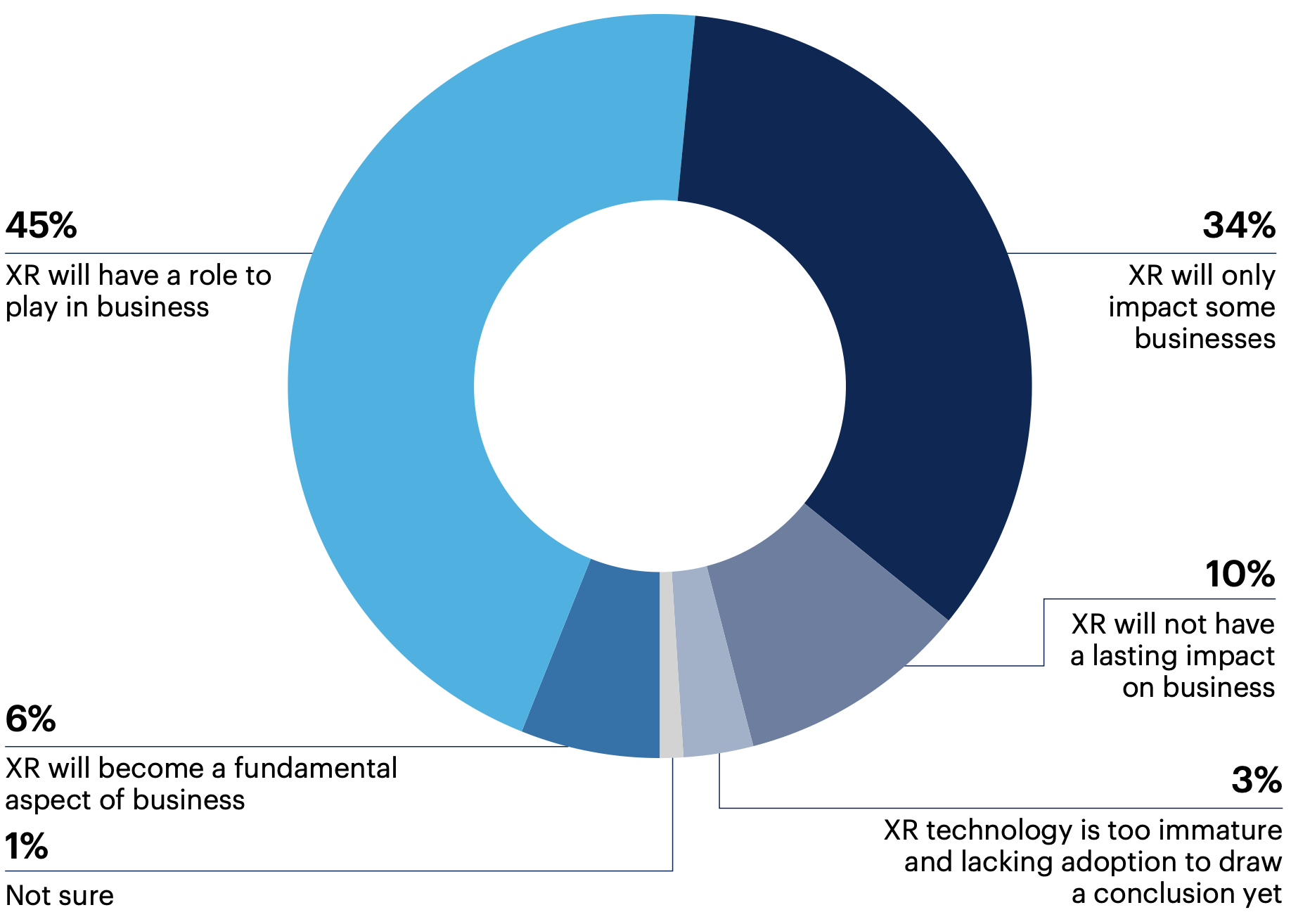
n = 300
Around one-third (34%) of respondents believe that XR will impact our lives, but won’t fundamentally change society. 40% think it will impact some niche industries and processes, but will not change our daily lives.
What level of impact do you think XR will have on society?
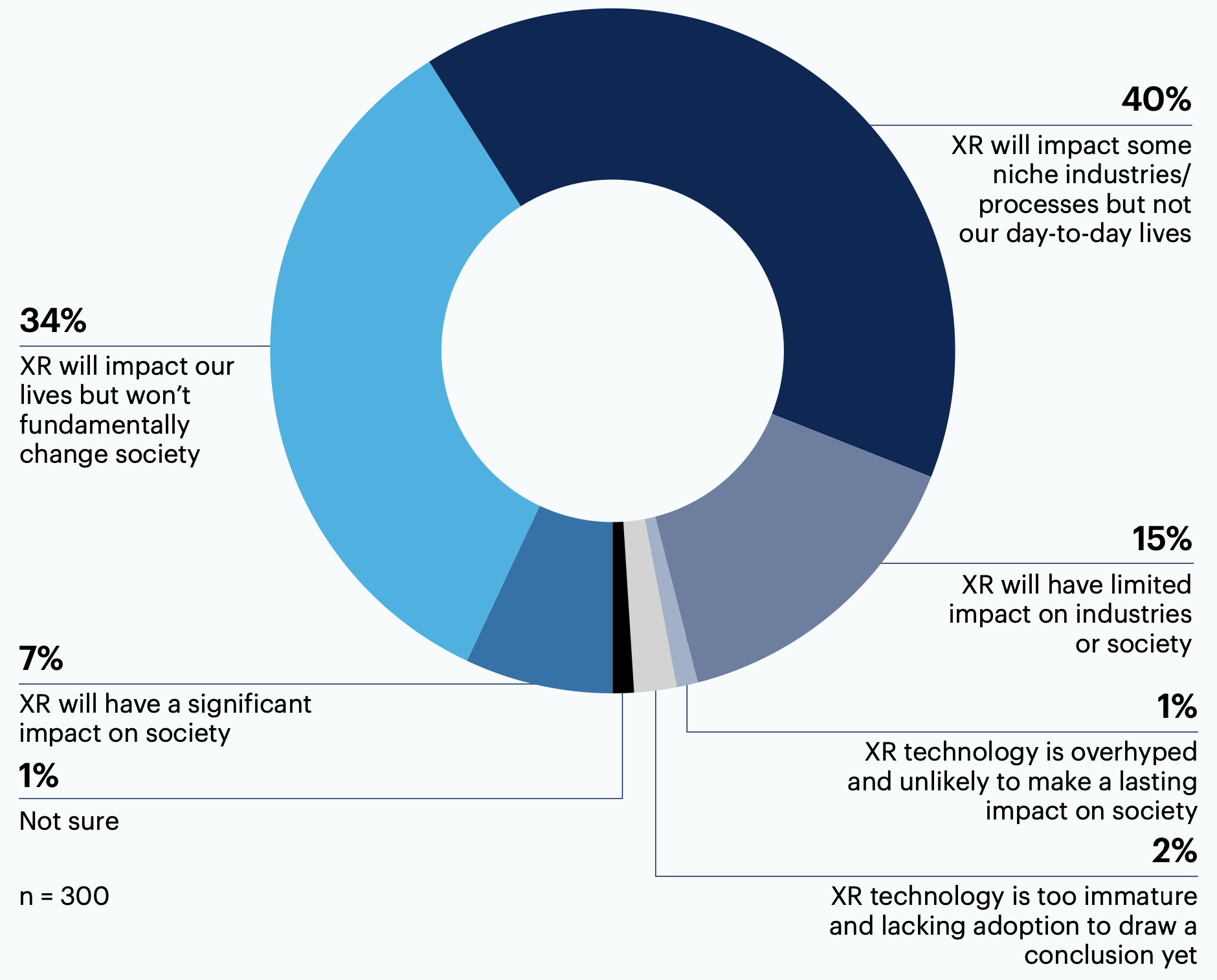
XR will be useful in some industries like Healthcare etc. but may not impact some businesses at all for [a] long time.
Many tech leaders have used XR recreationally, but fewer interact with it regularly
While 64% of respondents have interacted with XR, only 18% said they use a device regularly. Nearly one-third (30%) are not yet involved in the market, but are interested in participating.
Have you personally participated in the XR market?
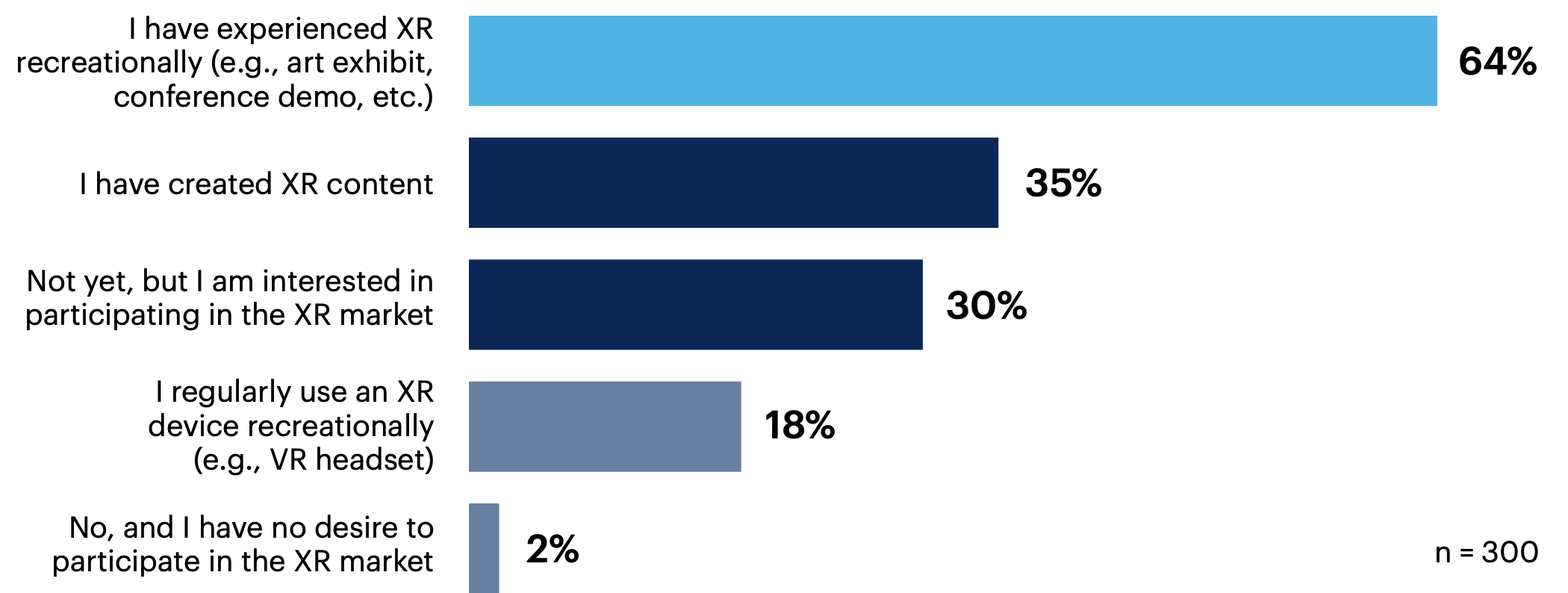
Cost/value factors will be important as this technology evolves. Society needs meaningful, cost-effective reasons to ever consider adoption.
[XR is] important and growing in adoption. Will be a key to success in the coming years.

Want more insights like this from leaders like yourself?
Click here to explore the revamped, retooled and reimagined Gartner Peer Community. You'll get access to synthesized insights and engaging discussions from a community of your peers.
Respondent Breakdown
